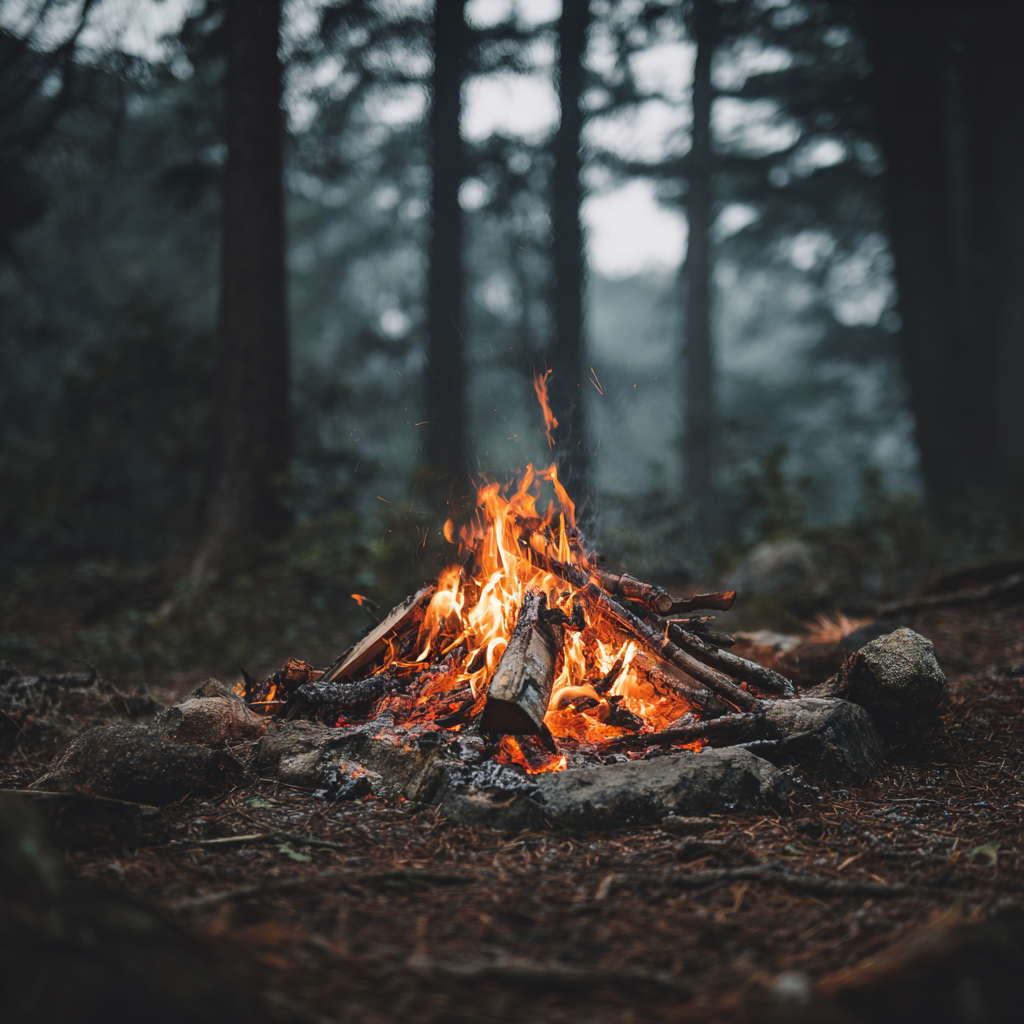A successful camping trip blends the thrill of the outdoors with the peace of mind that comes from being well-prepared. Whether you're heading deep into the backcountry or setting up at a family-friendly campground, having the right gear makes all the difference. Here’s a complete breakdown of the essentials to ensure both your safety and comfort on your next adventure.
Shelter and Sleep System
Tent: Your first line of defense against wind, rain, bugs, and unexpected weather. Look for a waterproof, easy-to-set-up model that fits your group size.
Footprint or Ground Tarp: Adds an extra layer of protection under your tent and helps prevent moisture from seeping in.
Sleeping Bag: Choose one based on the lowest temperatures expected. Synthetic bags are more affordable and perform well in wet conditions, while down bags are lighter and compress smaller.
Sleeping Pad or Mattress: Insulates your body from the cold ground and cushions pressure points. Foam options are reliable and simple to set up.
Camping Pillow: A compact pillow or stuff sack filled with clothes provides neck support and helps you sleep more soundly.
Lighting and Navigation
Headlamp and Flashlight: Essential for nighttime tasks and emergencies. A headlamp frees your hands, while a flashlight provides a powerful beam for spotting wildlife or navigating tricky terrain.
Extra Batteries or Power Bank: Don’t get caught in the dark. Always pack extras.
Map and Compass: Even if you use GPS, traditional tools are vital if your tech fails or runs out of battery.
Whistle and Signal Mirror: Compact, lightweight, and crucial if you need to alert others in an emergency.
Cooking and Fire Gear
Camp Stove and Fuel: Efficient and safe for meal prep. Ideal if you’re camping in areas where open fires are restricted.
Cookware and Utensils: A small pot, pan, knife, and utensil set is all you need. Opt for lightweight, durable materials like stainless steel or titanium.
Fire Starter: Matches, lighters, and fire starter cubes or sticks help get your campfire going fast—especially in damp conditions.
Cooler (for car camping): Keeps perishables safe to eat and drinks cool for longer trips.
Multi-Tool or Knife: A must-have for cutting rope, opening packages, food prep, and more.
Water and Food
Reusable Water Bottle or Hydration Bladder: Stay hydrated throughout the day.
Water Filter or Purification Tablets: Natural water sources can contain harmful microbes. A portable filter or tablets ensures safe drinking water.
Meal Packs and Snacks: Bring easy-to-prepare meals, protein bars, nuts, and dried fruit. Always carry extra in case of delays.
First Aid and Safety
First Aid Kit: Stock it with bandages, antiseptic, tweezers, pain relievers, allergy medication, and blister treatment.
Personal Medications: Always pack enough for your entire trip, plus a little extra.
Emergency Blanket: Lightweight and compact, it reflects body heat and helps prevent hypothermia.
Bug Spray and Sunscreen: Protect your skin from bites, sunburn, and irritation.
Clothing and Weather Protection
Layered Clothing: Pack moisture-wicking base layers, insulating mid-layers, and waterproof outer layers. Weather can change quickly.
Extra Socks and Underwear: Dry socks can prevent blisters and keep you warm. Always bring extras.
Hat, Gloves, and Sunglasses: Sun and wind protection for your face, head, and hands.
Hygiene and Waste Management
Biodegradable Soap and Quick-Dry Towel: Stay clean without harming the environment.
Toilet Paper, Hand Sanitizer, and Waste Bags: Practice Leave No Trace. Know whether you’ll need to bury waste or pack it out.
Toiletries: Toothbrush, toothpaste, lip balm, and wet wipes are lightweight comforts that go a long way.
Comfort Items
Camping Chair or Stool: Relax around the fire or while enjoying your morning coffee.
Compact Blanket or Mat: Perfect for stargazing, reading, or resting outside your tent.
Earplugs and Sleep Mask: Help block out camp noise and early sunrises so you can get solid rest.
Emergency and Backup Gear
Backup Light Source: A small lantern or extra flashlight is great for group areas or inside your tent.
Paracord or Rope: Useful for clotheslines, securing tarps, or emergency fixes.
Dry Bags or Zip-Seal Bags: Keep your clothes, electronics, and documents dry and organized.
A Bonus Comfort Tip
If you're someone who values a good night’s sleep no matter where you are, consider packing a compact memory foam camping mattress. It provides extra cushioning, insulates from the ground, and rolls up easily when it’s time to pack.
Final Checklist Summary
Here's a quick reference table to make sure you’ve got everything:
| Gear Category | Must-Have Items |
|---|---|
| Shelter | Tent, tarp, sleeping bag, sleeping pad, pillow |
| Cooking & Fire | Stove, fuel, cookware, lighter, multi-tool |
| Lighting & Nav | Headlamp, flashlight, batteries, map, compass, whistle |
| Water & Food | Bottles, filter, snacks, meal packs |
| First Aid & Safety | Kit, meds, sunscreen, insect repellent, blanket |
| Clothing | Layers, extra socks, rain gear, gloves, sunglasses |
| Hygiene | Biodegradable soap, towel, TP, sanitizer, wet wipes |
| Comfort & Backup | Chair, dry bags, extra flashlight, paracord, sleep aids |
Camp Smarter, Stay Safer
Camping should be enjoyable—not a stress test in the wilderness. With these essentials, you’ll stay warm, dry, well-fed, and ready for whatever nature throws your way. Whether you're going solo, bringing the family, or hitting the trail with friends, pack smart and enjoy the outdoors with confidence.

